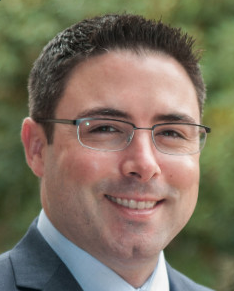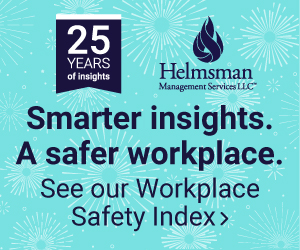Industry Insights
February 4, 2020
Castillo: Compounding the QME Crisis
- State: California
- - 0 shares
The State Auditor's report exposing the Department of Industrial Relations' failure to adequately administer the qualified medical evaluator process continues to ripple throughout the workers' compensation community.

Michael Castillo
And while the report rightfully characterizes the decline in QMEs as a longstanding problem causing delays in injured workers' ability to access benefits, there are other key components compounding the crisis: specifically the lack of certain specialty QMEs needed to evaluate some of the most catastrophic injuries in the system.
The Joint Legislative Audit Committee held an oversight hearing on Jan. 7 to review the findings of the auditor's report, and testimony was given on behalf of California Applicants' Attorneys Association that the failure to recruit and retain certain QME specialties is exacerbating the issue.
An example is the Division of Workers' Compensation completely eliminating the specialty of neuropsychology from the QME panels — the specialty most frequently requested in traumatic brain injury cases — in 2015. The DWC subsequently opposed a bill, which passed with bipartisan support, to reinstate the neuropsychology specialty. This opposition resulted in the bill's veto by former Gov. Jerry Brown.
Additionally, there are several specialties such as oncology and infectious diseases for which there are not enough doctors for a panel to issue.
The lack of specialist QMEs has resulted in injured workers having to travel hundreds of miles to be seen, as there are no doctors available on the list in their area. Injured workers are not even able to get an evaluation with an appropriate specialist for some of the most serious and catastrophic injuries.
A pertinent story from one of our members showcases a typical delay in the QME process:
- A 40-year-old male machine operator employed for three years starts noticing pain and numbness in his hands and wrists in October 2018, and files a claim.
- The occupational medicine treating doctor diagnoses carpal tunnel syndrome and finds industrial causation, but the carrier denies the claim and wants a QME evaluation.
- The worker gets an attorney.
- The first QME panel issues but the doctor selected isn't setting appointments until seven months later. Carrier objects and requests a replacement panel.
- The second panel issues but that doctor isn't scheduling until more than three months from the requested date.
- The carrier objects and requests another panel, but the doctor from the third panel is no longer doing evaluations at the address listed on the panel, so he won't schedule and the carrier has to request a fourth panel.
- The fourth panel issues (it is now nine months after the claim was filed) and the remaining doctor is setting appointments beyond 90 days, but the carrier has now agreed to waive the 90-day deadline for an evaluation date because it has simply given up.
- The evaluation is set for November 2019, one month later than the QME evaluation from the first panel would have been set.
- In the meantime, the injured worker has been off work since October 2018, burned through a year of state disability insurance and has obtained carpel tunnel surgery through his private group health insurance, along with other treatments such as physical therapy.
- The injured worker goes back to work in December 2019 — one month after the carpal tunnel surgery — yet he is still waiting for the report from the QME evaluation over a year after the process began.
How does any of this make sense?
To view the full hearing and to hear testimony from Diane Worley, CAAA's director of policy implementation, click here (CAAA's testimony begins at 2:14:57).
To read how the system has failed others, check out an article from CalMatters, here.
Michael Castillo is communications director for the California Applicants' Attorneys Association. This opinion is republished, with permission, from the CAAA website.
Advertisements
Columns
- Barthel: How Hard Can Intoxication Defense Be? 01/30/26
- Geaney: What Questions Should Permanency Evaluators Ask Petitioners? 01/28/26
- Paduda: Health Care Is Missing the Point 01/26/26
- Kamin: AI Citations Present Cautionary Tale for Attorneys 01/20/26
- Barthel: Is Rodriguez Worth It? 01/16/26
- Tolentino: Keep Your Friends Close, but Your Enemies Closer 01/14/26
- Young: The Top 2025 California Workers' Comp Developments 01/09/26
- Langham: Not Always an Accident 01/07/26
- Barthel: Is SIBTF a Great Idea Gone Awry? 01/05/26
- CAAA: New Comp Laws Take Effect in 2026 12/31/25
- Opalisky: The Ongoing War Over State's Statutory Employer Doctrine 12/30/25
- Kamin: Our Top 10 Blogs of 2025 12/26/25
- Barthel: Are You an Employer, or Do You Use Independent Contractors? Can You Prove It? 12/24/25
- Barthel: Is Pot a Defense? Are You High? 12/22/25
- Barthel: Is Dubon II on the Way Out? 12/17/25
- Montgomery: San Fran City Official Stole $627k From Workers' Comp Division 12/10/25
- Kamin: Ring the Bells for Settlement Season 12/08/25
- Paduda: Does Comp Care About Workers? 12/05/25
- Sandoval: Throwing Subrogation Under the Bus 12/03/25
- Johnson: Some Thoughts on Apportionment - And SIBTF 11/20/25
Now Trending
- Workers' Compensation News
-
Calif. DWC
Proposes Attorney Fees for…
Posted on Jan 28, 2026
-
Calif. High Court
to Review Rodriguez Ruling on WCAB
Jurisdiction Over Medical…
Posted on Jan 26, 2026
-
Calif. Senate
Passes Amended Bill to Increase PPD…
Posted on Jan 29, 2026Richard Berryhill says: “The rates quoted are not correct. The current minimum benefit not $240…”
-
Calif. Kids'
Chance of California Announces
Board…
Posted on Jan 28, 2026
-
Calif. DWC
Proposes Updates to Treatment…
Posted on Jan 28, 2026
-
Calif. Santa
Barbara District Office Moving to…
Posted on Jan 26, 2026
-
Ore. High Court:
Tort Claim Act Immunity for State
Workers…
Posted on Jan 27, 2026
-
Hawaii Bills Focus
on Medical Treatment, Unpaid…
Posted on Jan 27, 2026
-
N.Y. Court:
Worker's Injuries Didn't Occur
While Engaged in Covered…
Posted on Jan 28, 2026
-
Ohio Court
Overturns Summary Dismissal of
Worker's Claim for Aggravation…
Posted on Jan 30, 2026
Jobs
- Defense WC Attorney Wanted- We will beat any offer for the right candidate. Low billables, real bonuses and fast track equity partnership
- WC DEFENSE ATTORNEY (REMOTE)
- AA Work Comp hearing rep or attorney: Remote Job
- ATTORNEY - Workers Comp Defense
- Legal Assistant/Paralegal–Workers’ Comp
- Attorney for Northern California
- Attorney for Southern California Workers' Compensation Jobs
Upcoming Events
Mar 3-4, 2026
Save The Date! WCRI’s 2026 Ann
Registration will open up in the coming months. We'll see you there! - Leading national workers' …
Mar 5-6, 2026
DWC’s 33rd Annual Educational
Register Now! 2026 conference topics: DWC Update AI with a Claims Focus Medical and Legal Ethics …
Mar 19-20, 2026
DWC’s 33rd Annual Educational
Register today! 2026 conference topics: DWC Update AI with a Claims Focus Medical and Legal Ethi …
Social Media Links
c/o Business Insurance Holdings, Inc.
Greenwich, CT 06836




No Comments
Log in to post a comment